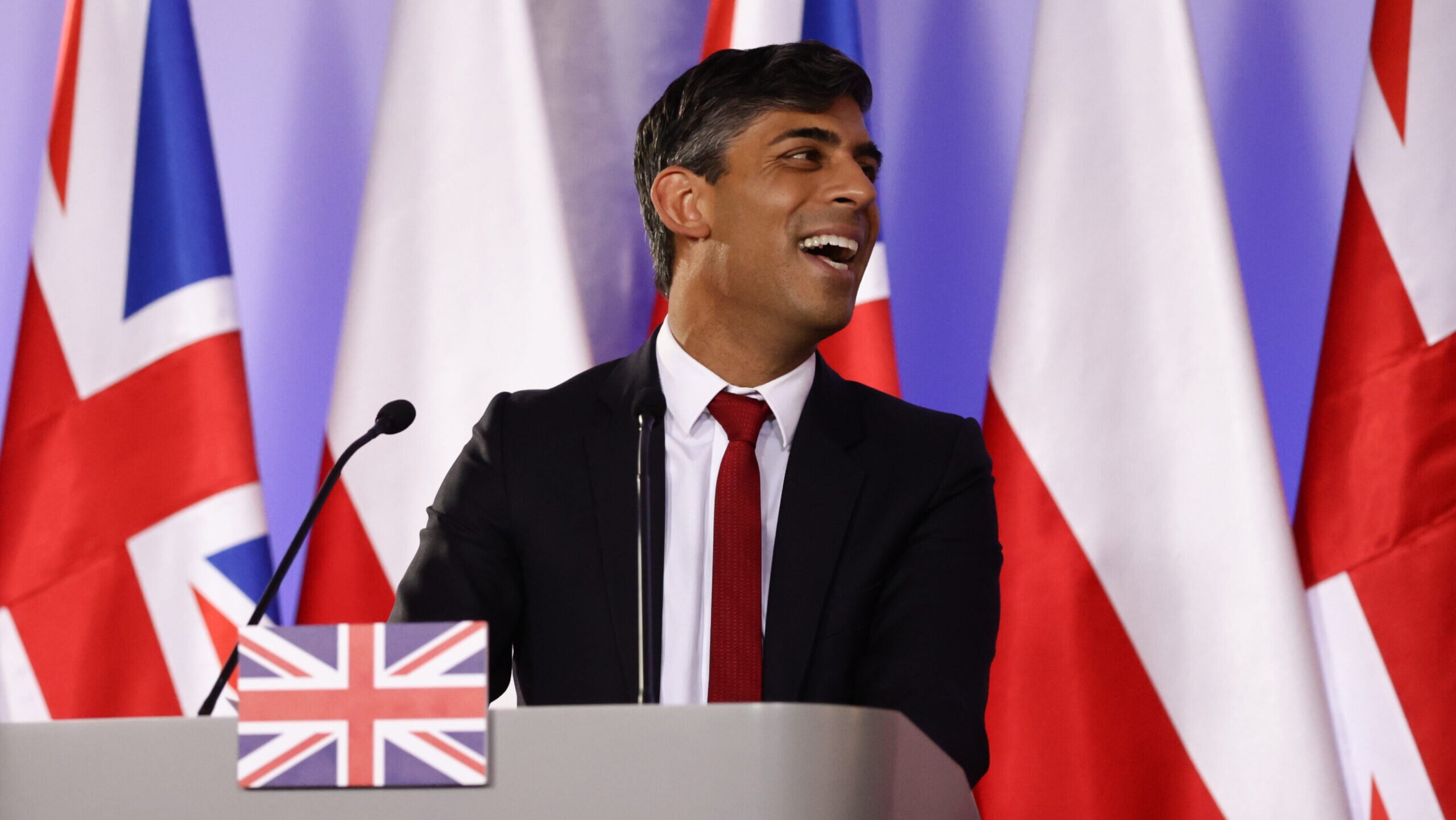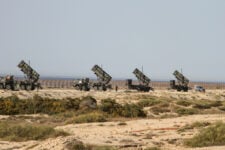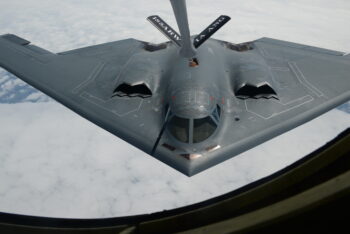
British Prime Minister Rishi Sunak during his meeting with Polish Prime Minister Donald Tusk in Warsaw, Poland on April 23, 2024. (Photo by Jakub Porzycki/NurPhoto via Getty Images)
BELFAST — The UK will increase defense spending to 2.5 percent of GDP by the end of the decade to deliver a “generational investment” and respond to a world at its most “dangerous” since the end of the Cold War, British Prime Minister Rishi Sunak said during a visit to Warsaw, Poland, today.
Under the new plan, London wants to spend a cumulative extra of £75 billion ($93 billion) over the next six years, culminating in a 2030 annual defense budget of £87 billion ($108 billion), consolidating its position as the largest military spender in Europe, and second for NATO members behind only the US.
There is no guarantee that the plan will succeed however as the Conservative Party, which Sunak leads, must call a general election on or before January 2025, with polls showing that the opposition Labour Party is on course to take power.
Sunak has consistently refused to say when exactly the election will take place, committing only to the “second half” of 2024.
“Today is a landmark moment in the defence of the United Kingdom,” he said of the defense spending plan, at a joint press conference with NATO Secretary General Jens Stoltenberg.
Sunak added that the spending hike was necessary because the “pace and intensity” of state-based threats had changed significantly.
“An axis of authoritarian states with different values to ours, like Russia, Iran, North Korea and China are increasingly assertive,” he added. “The danger they pose is not new, but what is new is that these countries or their proxies are causing more instability, more quickly, in more places at once … they’re increasingly acting together, making common cause in an attempt to reshape the world order.”
Though he spoke with immediacy, Sunak himself had resisted announcing such a plan despite pressure for months within his own party, instead saying the jump to 2.5 percent of GDP would happen when economic conditions “allow.”
The potentially politically shrewd upping of the ante comes less than two weeks after Labour leader Keir Starmer said in an interview with the I newspaper, a British publication, that, if elected, he too would increase defense spending to 2.5 percent GDP “as soon as resources allow.”
In addition to the new funding announced by Sunak, he also revealed that the UK defense industry will be placed on a “war footing,” supported by a £10 billion ($12.4 billion) investment in munitions production. Deeper stockpiles and a need to replenish them “more quickly” are “central” lessons from the war in Ukraine, he noted.
Britain’s defense procurement system will also undergo “radical reform” in order for new investments to deliver “value for money and to encourage private sector investment into defence production,” said Sunak.
Ahead of the meeting with Stoltenberg, Sunak announced that the UK will provide Ukraine with an additional £500 million ($622 million) military aid package, on top of £3 billion ($3.7 billion) already committed for the 2024 financial year.
The latest round of funding covers the supply of over 1,600 strike and air defense missiles, additional MBDA-made Storm Shadow long-range precision-guided missiles; 60 boats, including offshore raiding craft; 162 armoured vehicles and 78 all-terrain vehicles and almost 4 million rounds of small arms ammunition.
“At first look, this isn’t really a coherent ‘package’ for a particular force, but it is broad, and can probably be seen as a spur to others [to supply more equipment],” said Matthew Savill, military sciences director at the Royal United Services Institute, a London based defense think tank. “The air defence missiles, for example, could be more Starstreak or converted air-to-air missiles (as the UK has provided previously). They complement rather than replace larger systems, where Ukraine wants to have a range of options to preserve Patriot for other targets, rather than expend it on smaller or slower moving targets where a smaller defence missile makes more sense.”
CORRECTION 4/24/2024 at 5:33am ET: The UK, not Germany, is the largest defense spender in Europe. This story has been updated.






















